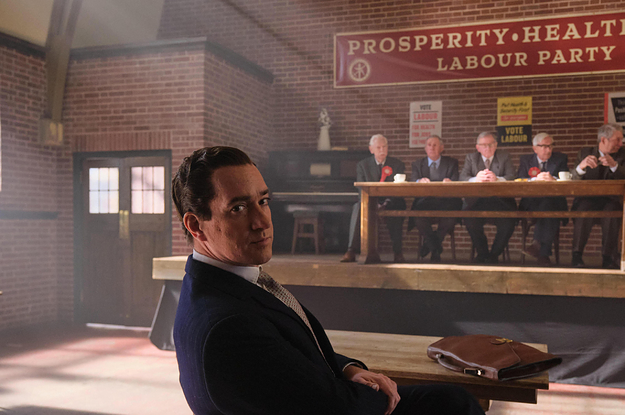The three-episode series, available to watch on the BritBox streaming service, shows Stonehouse in absurd ripped-from-the-headlines situations. He was allegedly a spy for Czechoslovakia and also defended himself without a lawyer against charges of fraud, theft, and deception.
John Preston, the show’s writer, said Stonehouse’s confounding thinking made him compelling: “He’s blindly driven by instinct, but at the same time, remains firmly convinced that he’s acting in an entirely rational way.”
Preston, who spent decades working as a journalist, largely avoided fictionalizing scenes for the series because of how bizarre the true story actually is. A Sunday Times piece found that 95% of the events depicted in Stonehouse are true.
Macfadyen added that some odd events were left out of the series. In the show, Stonehouse leaves a pile of clothes on the beach and a passport to appear dead. Preston said Stonehouse actually flew back across the Atlantic and went to the beach to leave more clothes after no obituaries were published. He decided to leave this detail out of the show.
In general, Preston said he didn’t want to place judgment on what kind of person Stonehouse was. “I wanted to try and understand him and, interestingly, what happens to someone when circumstances bend them out of shape,” he said. “But I certainly didn’t want to say he’s a good person, he’s a bad person, or anything like that. I really feel that that’s up to the audience to make up their own mind.”
This good-or-bad consideration is not dissimilar to the conversation around Macfadyen’s character on Succession. Season 3 ended on a shocking cliffhanger where Wambsgans snitched about Shiv and her siblings’ plan to steal control over their calculating father’s company, Waystar Royco.


